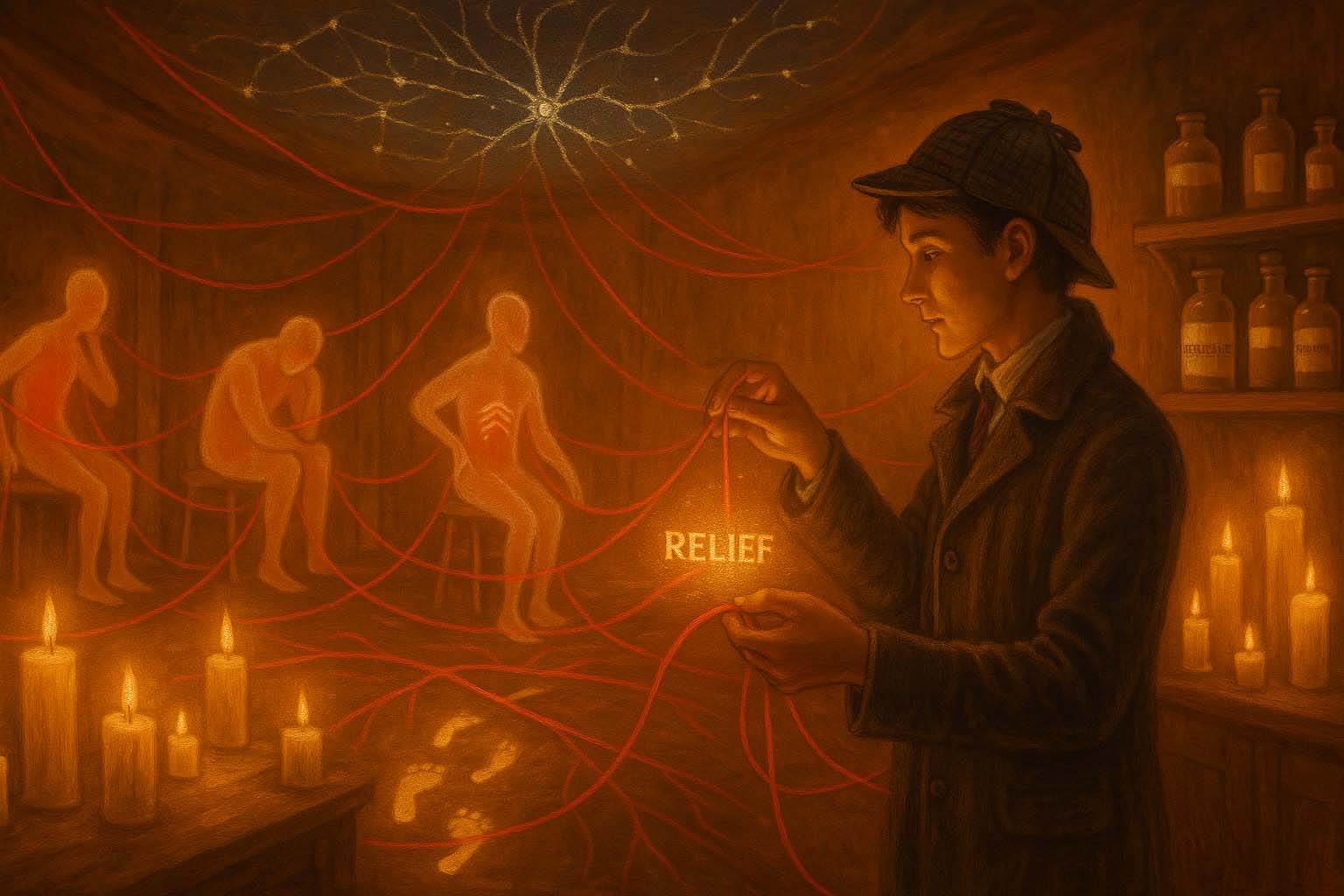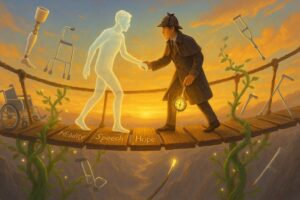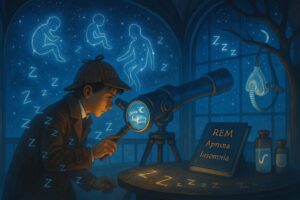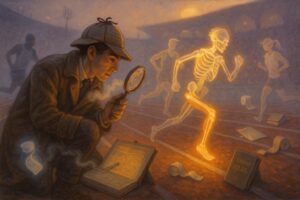
Pain Medicine
- Posted by admin
- Categories Complex & Integrated Medicine
- Date May 23, 2025
- Comments 0 comment
The Suffering Detective’s Domain - Cracking the Cases of Chronic Ache, Silent Agony, and the Language of the Nervous System
1. Introduction: The Scene of the Specialty
Step into the shoes of a Pain Medicine sleuth.
This is the realm where medicine meets meaning—where pain persists long after healing, and the diagnosis lies not in a scan but in a story. Pain physicians are detectives of distress, decoding physical signals, psychological shadows, and neurological misfires. They walk with patients through suffering others can’t see, offering science, validation, and hope. Welcome to a world where every twinge has a tale, and where your mission is not to erase pain, but to untangle it.
2. Key Mysteries They Solve (Common Conditions & Syndromes)
These detectives specialise in solving cases involving:
- Chronic Back and Neck Pain – mechanical, neuropathic, or post-surgical.
- Complex Regional Pain Syndrome (CRPS) – burning pain, swelling, and autonomic dysfunction.
- Neuropathic Pain – including diabetic neuropathy, post-herpetic neuralgia, and nerve entrapments.
- Cancer Pain and Palliative Analgesia – balancing relief and function with dignity.
Each case is layered, lived, and long-term—requiring more than pills and protocols—it needs partnership.
3. Their Trusted Tools & Techniques
Every detective has their kit—and in Pain Medicine, tools may include:
- Multimodal Analgesia – combining medications (opioids, NSAIDs, anticonvulsants, antidepressants) tailored to pain type.
- Nerve Blocks and Epidurals – interrupting transmission at its source.
- Radiofrequency Ablation and Neuromodulation – using heat or electricity to quiet misfiring nerves.
- Cognitive and Behavioural Interventions – integrating pain psychology, pacing, and meaning-making.
This is not quick-fix medicine—it’s layered healing, mapped over time.
4. The Charms of This Field: Why It Captivates the Curious
- Biopsychosocial Challenge: Pain is never just physical—it’s emotional, relational, and existential.
- Interdisciplinary Collaboration: Work alongside physiotherapists, psychologists, surgeons, and palliative care.
- Deep Impact: Chronic pain ruins lives—you can restore sleep, function, and identity.
- Lifelong Learning: Pain science is constantly evolving—neuromodulation, central sensitisation, mind-body links.
This is a specialty where compassion sharpens your clinical acumen.
5. Challenges: The Toughest Cases They Face
- Invisible Illness – Pain is real, even when imaging is normal. Believing the patient is step one.
- Medication Risks – Opioid management requires ethics, boundaries, and vigilance.
- Psychological Comorbidity – Depression, trauma, and anxiety often entwine with the pain experience.
- Frustrated Patients – Many arrive disbelieved, disillusioned, and desperate.
But the seasoned pain physician knows: you treat the person, not just the nerve.
6. Famous Cases and Hallmark Clues
- The “Classic Presentation” – Persistent radicular pain after spinal surgery: failed back surgery syndrome.
- The “Zebra” – Swollen, discoloured, hypersensitive limb after a minor injury: CRPS.
- The “Aha Moment” – Realising fibromyalgia is not “all in the head”—but a central pain disorder needing systemic, not localised, care.
7. Your Training Trail: How to Join the Investigation
To become a Pain Medicine detective:
- Begin with anaesthetics, rehabilitation, or general medicine—then sub-specialise in pain.
- Master neuroanatomy, pharmacology, pain psychology, and procedural skills.
- Learn to ask beyond the pain score: “What does this pain stop you from doing?”
- Build trust—it takes time to reach the story beneath the symptoms.
Whether you’re placing a spinal cord stimulator or helping a patient return to meaningful activity, you are healing beyond the visible.
8. Final Words: The Signature of the Pain Medicine Detective
Pain medicine detectives are quiet revolutionaries.
They challenge the idea that pain must be endured or ignored.
They offer relief, but also understanding. They use needles and words, scans and soul, to bring people back to themselves.
So if you’re drawn to complexity, empathy, and the power of seeing what others miss—
then this is your deeply human, deeply needed field.



